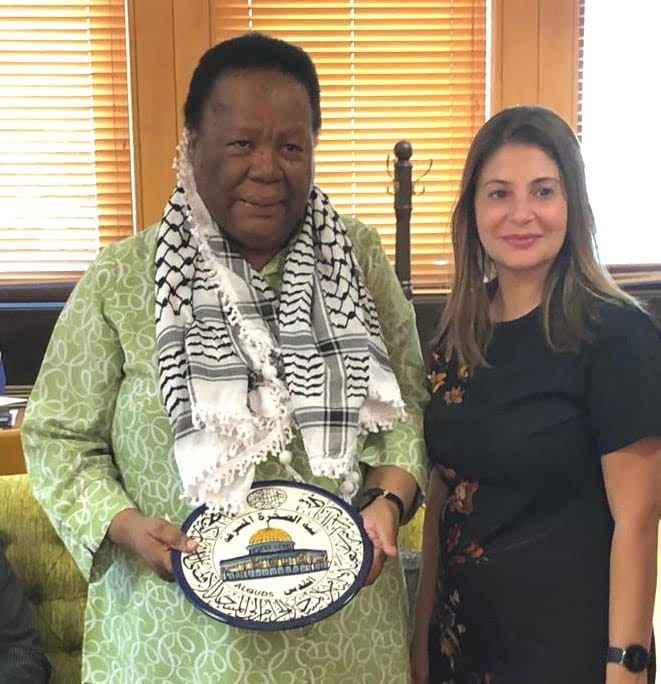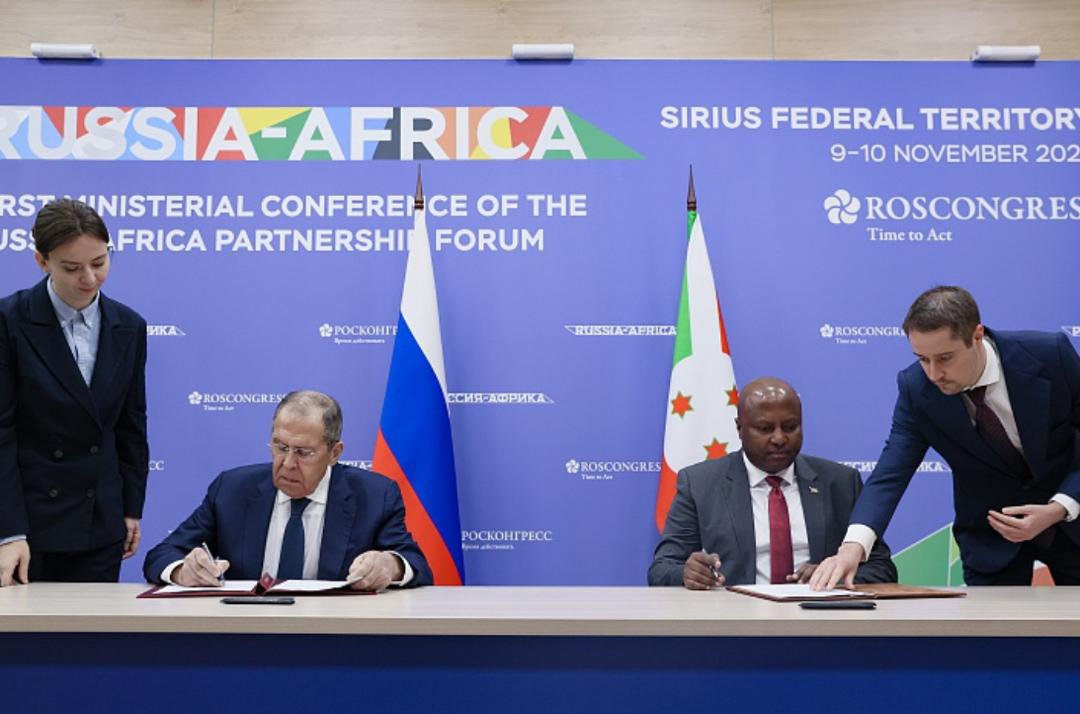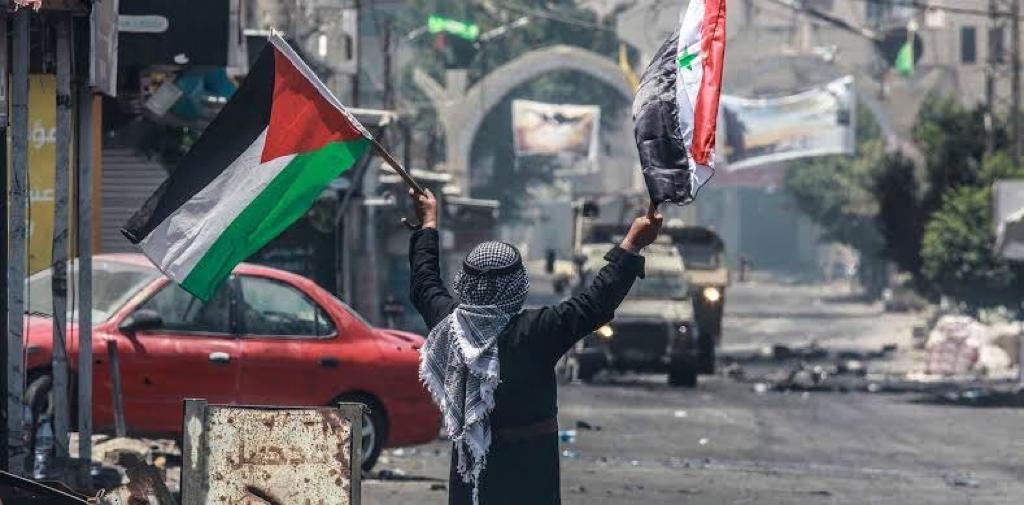
South Africa's Minister of International Relations Naledi Pandor with Palestinian Ambassador to South Africa, Hanan Jarrar
With a number of recent decisions, the South African government has shown that it is committed to supporting the Palestinian people, but that must be backed up by uncompromising action domestically and globally, writes Na’eem Jeenah
Following what is normally a routine, even boring and mostly-ignored, event – the acceptance by a South African president of letters of credence from foreign ambassadors – the past two weeks witnessed a flurry of criticisms, explanations, condemnations and defences after President Cyril Ramaphosa’s most recent ceremony of receiving new ambassadors.
Immediately after South Africa’s Department of International Relations and Cooperation (DIRCO) and the South African presidency tweeted pictures of a smiling Ramaphosa with a smiling new Israeli ambassador, Eliav Belotsecovsky, Palestine solidarity activists in the country responded angrily, slamming the president, the government and the ruling African National Congress (ANC), accusing them of hypocrisy and of betraying the Palestinian people.

Uncharacteristically, DIRCO responded immediately on social media, attempting to reassure South Africans that government remained pro-Palestinian. That sparked more and harsher condemnations; prompting DIRCO to respond with a rambling defensive statement asserting: “The situation is dynamic and South Africa will ensure that its diplomatic presence is strategic and geared towards ending the occupation.”
Apartheid
Stronger condemnation followed, from activists, some opposition political parties and politicians who insisted that the DIRCO statement was only for public relations, and demanded that South Africa terminate diplomatic relations with the state that a number of human rights organisations (including, most recently, Amnesty international) have labelled an apartheid state, a designation also used by the South African Human Sciences Research Council, and, increasingly, South African government officials.
Israeli apologists in South Africa, a little late to the party, claimed to be “encouraged by the government’s acceptance of the credentials of [the] Israeli ambassador” and viewed it as “a practical and positive step forward in increasing ties between the governments of SA and Israel”, in the words of the national chairperson of the South African Zionist Federation (SAZF), Rowan Polovin.
He did, however, accuse some in the ANC of “us[ing] and abus[ing] the Israel issue for their domestic political agendas”. Thus, it seems, he agreed with some Palestine solidarity activists that the ruling party was inconsistent and hypocritical.
During his address at the recent African Union (AU) Heads of State Summit, AU Commission chair, Mousa Faki Mahamat, defending his decision to accredit Israel to the AU, also referenced Ramaphosa’s acceptance of the Israeli ambassador’s credentials, calling it a “double standard”. Though he didn’t mention Ramaphosa or South Africa, no one was in doubt what he had referred to.
“Hypocrisy”? “Paradigm shift”?
It is fair to ask, however, whether Ramaphosa’s accepting the Israeli letter of credence really is hypocrisy, or, as Polovin called it, a “paradigm shift”. Presenting the matter in these ways serves the agendas of those articulating these positions, but does it reflect the reality?
The solidarity activists want to use the ceremony to pressure government to end diplomatic links with Israel; the Israel apologists want to pressure government to “clearly indicate its support for Israel and acknowledge its place as the only democracy in the Middle East,” according to Polovin. But government has charted its course on this issue and will accede to neither demand.
Far from being a “paradigm shift”, South Africa’s president accepting the credentials of an Israeli ambassador has been the practice of all South African presidents in the democratic era; there is nothing special about Ramaphosa doing this (nor that he smiled broadly at the official of an apartheid state).
Many within the Palestine solidarity movement believe and argue that South Africa should end all relations, including diplomatic, with Israel. Government and the ruling party have – rightly or wrongly – taken the view that they will incrementally reduce South Africa’s diplomatic representation in Israel, but will not force the Israelis to reciprocate.
South Africa can do more
Of course, government and the ANC can do much more to give credence to their claimed support for the Palestinian people, such as granting Palestinians visas on arrival (a privilege that Israelis enjoy), scholarships for Palestinian students, and, generally, giving Palestinians the kind of benefits that states supporting the South African anti-apartheid struggle gave to Black South Africans.
Further, government needs to develop and announce a plan for reducing trade relations with Israel in line with the guidelines of the global BDS (Boycotts, Divestment and Sanctions) campaign. But inadequacy is a far cry from hypocrisy.
And, of course, South Africa should not again go down the road of wanting to “mediate” between Palestinians and Israelis. That has been tried, and exploited by Israel; it is still used as a stick by the Israel lobby to attempt to muzzle South Africa’s criticism of Israeli crimes.
South Africa, it is clear, is pro-Palestinian and we should continue to support Palestinians domestically and abroad, including by vigorously opposing Israel’s human rights violations, war crimes and crimes against humanity.
Weakening relations
But it needs to be stated that South Africa has, incrementally since the mid-2010s, weakened its relations with Israel. Around 2014, Palestine solidarity activists campaigned against the practice of ANC Youth League leaders, municipal police and other government officials visiting Israel for “training” and on “fact-finding missions”.
Ebrahim Ebrahim, then deputy minister of international relations and head of the ANC’s International Relations committee responded by declaring that, thenceforth, government and ANC officials would not be allowed to travel to Israel “except if it has to do with the peace process”.
Israel, Ebrahim said, “is an occupier country which is oppressing Palestine, so it is not proper for South Africans to associate with Israel,” Thus began a rapid slowing down of official relations between the two states.
A significant “paradigm shift” was the resolution of the ANC’s 2017 conference, at which guests included representatives of the Palestinian Liberation Organization (PLO) and Hamas, to downgrade South Africa’s diplomatic representation in Tel Aviv.
Though many observers believed that government would ignore the resolution, as it does with many ANC resolutions, the next year saw South Africa’s Ambassador to Tel Aviv recalled in protest against the Israeli massacre of demonstrators in Gaza during the “Great March of Return”, and South Africa resolved not to send another ambassador to Israel, effectively downgrading its representation. Discussions are ongoing in DIRCO about how to give further effect to the 2017 ANC resolution.
On the African continent, South Africa remains one of the strongest supporters of the Palestinian people and their struggle for liberation. This was borne out by South Africa’s active campaigning for a boycott of the 2017 “Africa-Israel Summit” planned to be held in Togo, which was subsequently cancelled. And, since July 2021, South Africa – with Algeria –led the campaign against Israel’s accreditation to the AU.
Currently, following the various designations of Israel’s apartheid practices and based on the International Convention on the Suppression and Punishment of the Crime of Apartheid, South Africa is also at the forefront of campaigning for the apartheid label to be applied to Israel in multilateral fora such as the UN.
Numerous countries of the global south, in particular, are looking to South African leadership on this issue, and we dare not waver in efforts to ensure Israel is declared an apartheid state in the UN and made into a pariah, as apartheid South Africa was.
None of this, it might be argued, deserves any great praise. The South African government – especially Minister Naledi Pandor and President Ramaphosa – are simply giving effect to our constitutional values and the values and principles of various foreign policy position papers.
Indeed, a regular and valid criticism by solidarity activists is that while South Africa has strong and principled positions on the Palestinian issue in multilateral fora, it does not translate those domestically with policies supporting boycotts, divestments and sanctions; by ensuring that state-owned enterprises do not use products and services from Israel; and by supporting workers – such as Clover Dairy workers most recently – in their battles against Israeli-owned companies in South Africa.
But it does mean, first, that South Africa’s solidarity with the Palestinian people is more than what might be reflected in a picture with a smiling apartheid ambassador and post-apartheid president.
And, second, that no matter how Israeli apologists want to trap South Africa into a “mediator” role and thus blunt its action against Israel that ship has sailed. The South African government and ruling party have placed themselves firmly in the Palestinian camp and their action on the global stage must reflect that uncompromisingly.
Na’eem Jeenah is the director of the Afro-Middle East Centre in Johannesburg. Find him on Twitter: @NaeemJeenah









